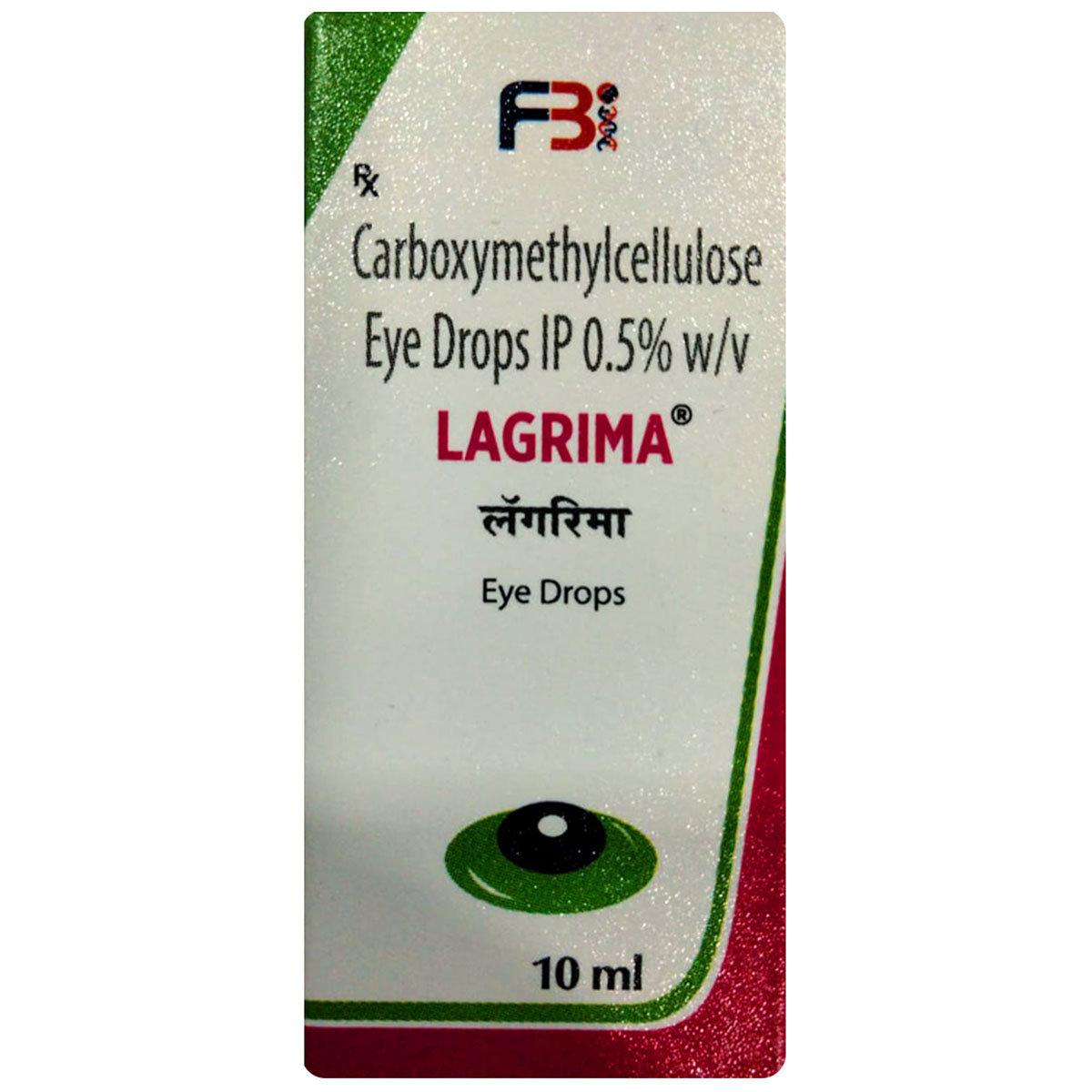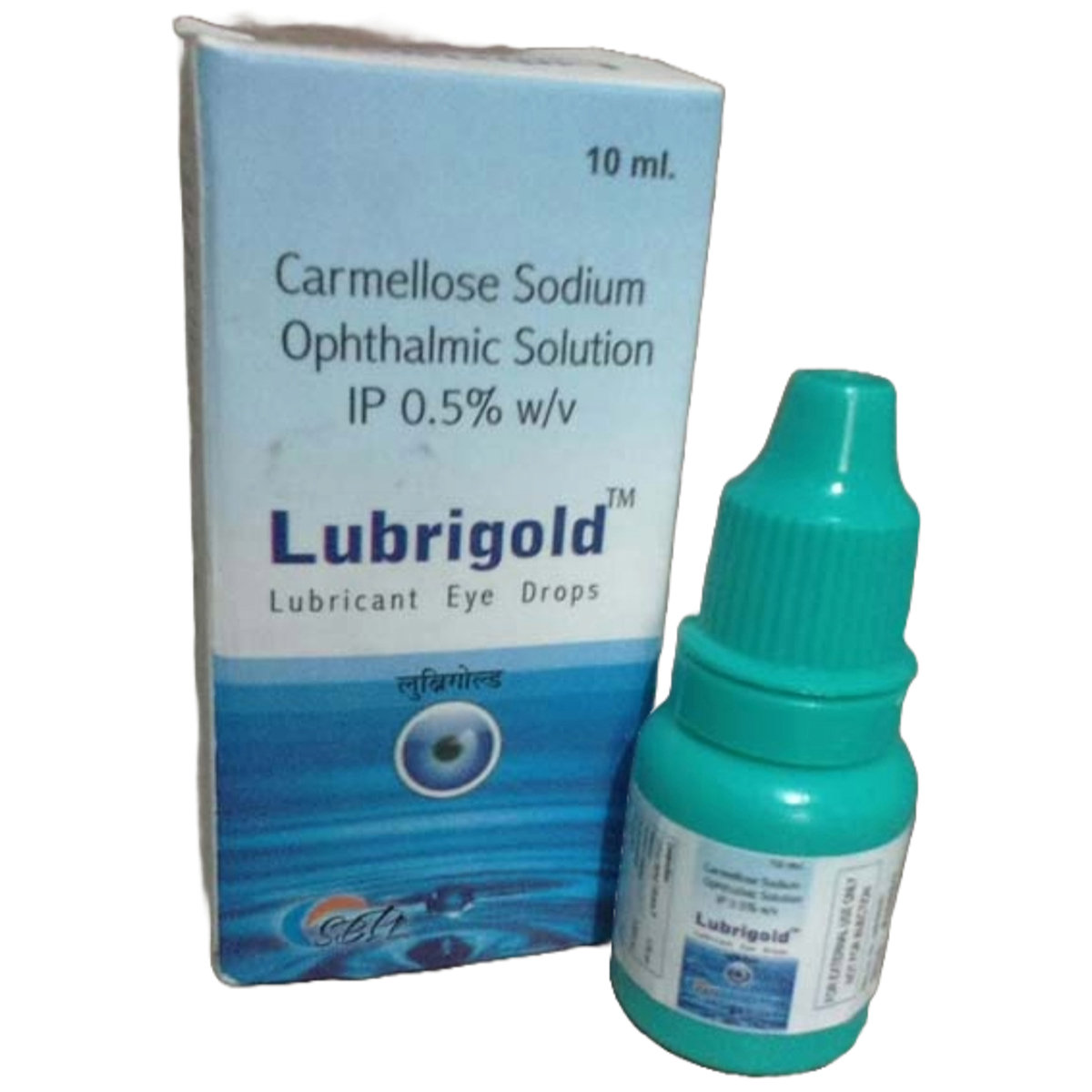Carboxymethyl Cellulose
About Carboxymethyl Cellulose
Carboxymethyl Cellulose belongs to the class of medicines called 'ophthalmic lubricants', generally used to treat dry eye disease. It provides temporary relief from the burning and discomfort of the eye.
Carboxymethyl Cellulose contains carboxymethylcellulose, which increases tear viscosity in the eye. It provides moisture to the eye and relieves irritation caused by dryness. It also makes a protective film in the eye to prevent dryness.
Carboxymethyl Cellulose may cause side effects like burning/stinging sensation, redness, irritation and eye pain. If any of the side effects persist or worsen, consult your doctor.
Do not use Carboxymethyl Cellulose if you are allergic to any of its components. Do not touch the bottle's tip to avoid contamination, and replace the cap tightly after each use.
Uses of Carboxymethyl Cellulose
Medicinal Benefits
- Carboxymethyl Cellulose contains Carboxymethylcellulose, which increases tear viscosity and mimics the action of natural tears.
- It moisturises the eyes and relieves irritation caused by dryness.
- Carboxymethyl Cellulose forms a protective film over the eye surface to prevent further dryness.
- It provides temporary relief from burning, discomfort, and irritation associated with dry eyes.
Directions for Use
- Follow your doctor's instructions on the dosage and timing of this medication to ensure safety.
- Lie down and tilt your head backwards. Pull your lower eyelid gently with your index finger to form a pocket. Instil the number of drops advised by the doctor into the pocket of the lower eyelid. Close your eyes for 1-2 minutes.
- Do not touch the tip of the dropper to prevent contamination. Gently wipe away any excess liquid around the eyes with a clean tissue.
Storage
Side Effects of Carboxymethyl Cellulose
- Irritation
- Burning sensation
- Pain at the application site
Drug Warnings
- Before using Carboxymethyl Cellulose, tell your doctor if you are allergic to any of the medicine components.
- Wash your hands before using Carboxymethyl Cellulose to avoid contamination.
- Do not touch the bottle's tip to avoid contamination, and replace the cap tightly after each use.
- Do not use a solution that is colour-changed and cloudy in appearance.
- Do not drive or use machinery, or do any activity until your vision is clear, as Carboxymethyl Cellulose causes temporary blurred vision.
Drug Interactions
Drug-Drug interactions: No drug interaction found.
Drug-Food interactions: No food interaction found.
Drug-Disease interactions: No disease interaction found.
Drug-Drug Interactions Checker List:
Safety Advice

Alcohol
cautionCarboxymethyl Cellulose should be taken as advised by your doctor.

Pregnancy
safe if suggestedCarboxymethyl Cellulose is probably safe to use in pregnancy. But it should be used only when suggested by a doctor if he/she thinks the benefits overweigh the risks.

Breast Feeding
safe if suggestedCarboxymethyl Cellulose is probably safe to use in breastfeeding mothers. But it should be used only when suggested by a doctor if he/she thinks the benefits outweigh the risks.

Driving
cautionAfter application of Carboxymethyl Cellulose, vision may be unclear, so take some time and relax and then go for a drive.

Liver
safe if suggestedCarboxymethyl Cellulose is probably safe to use in liver diseases. Please consult your doctor before using Carboxymethyl Cellulose.

Kidney
safe if suggestedCarboxymethyl Cellulose is probably safe to use in kidney diseases. Please consult your doctor before using Carboxymethyl Cellulose.

Children
safe if suggestedCarboxymethyl Cellulose should be used in children only when suggested by a child specialist.
Habit Forming
Diet & Lifestyle Advise
- Take fish in your diet, which has omega-3 fatty acids that may counter dry eyes.
- Leafy greens are rich in vitamin C, which contributes to eye health.
- Drinking more water has a big role to play in tear production.
- Avoid air blowing in your eyes.
- Take eye breaks during long tasks and keep your computer screen below eye level.
- Stop smoking and avoid drinking alcohol.
- Use eyeglasses when you are going out.
Special Advise
- If you wear contact lens, remove them before using Carboxymethyl Cellulose.
- Tell your doctor if your eye condition persists or worsens after 3 days.
Patients Concern
Disease/Condition Glossary
Dry eye disease: Dry eye disease is a common condition that occurs when your tears cannot provide adequate lubrication for your eyes. The tearing instability leads to inflammation and damage to the eye's surface. Symptoms include a burning sensation, sensitivity to light, eye redness, a sensation of having something in your eyes, watery eyes, and blurred vision. It is caused by disruption of the healthy tear film due to hormonal changes, autoimmune disease, inflamed eyelid glands, ageing, wearing contact lenses, using some antihistamines, and laser eye surgery.
FAQs
Carboxymethyl Cellulose is used to treat dry eye (s).
Maintain a gap of 5-10 minutes between Carboxymethyl Cellulose and other eye medications.
Eye ointment is advised before using eye drops.
Carboxymethyl Cellulose may cause temporary common side effects like burning, stinging, or irritation. If these persist, consult your doctor.
Carboxymethyl Cellulose should be used within 4 weeks after breaking the seal of the container or bottle.
If you are wearing contact lenses, remove them before using Carboxymethyl Cellulose. You can put them back in 15 minutes after instilling Carboxymethyl Cellulose.
Carboxymethyl Cellulose is not known to cause pupil dilation. It is used to treat dry eyes. Consult the doctor if you have any concerns.
It is recommended to avoid driving or operating heavy machinery after using Carboxymethyl Cellulose as it may cause temporary blurred vision and impair your ability to drive. To prevent contamination, avoid touching the tip of the container to any surface and replace the cap after use. If you experience eye pain, changes in vision, persistent redness, or irritation, or if the condition worsens or lasts longer than 72 hours, discontinue using Carboxymethyl Cellulose and consult the doctor.
No, you should not use Carboxymethyl Cellulose for a longer duration. Always use Carboxymethyl Cellulose for the duration suggested by the doctor to treat the condition effectively.
Yes, Carboxymethyl Cellulose may cause temporary blurry vision as a common side effect. Avoid driving and operating machinery until your vision is clear.
Yes, Carboxymethyl Cellulose is safe for children. However, it should be used for children only if advised by the doctor.
No, you should not stop using Carboxymethyl Cellulose even though you feel better. Always complete the duration of treatment suggested by the doctor to treat the condition effectively.
Carboxymethyl Cellulose contains carboxymethyl cellulose, which belongs to the group of ophthalmic medications primarily used to treat dry eyes.
Carboxymethyl Cellulose should be stored in a cool and dry place away from sunlight. Keep it out of sight and reach of children.
Carboxymethyl Cellulose is for ophthalmic use only. Wash your hands thoroughly, before and after using the drops. Lie down and tilt your head backwards. Pull down your lower eyelid with your index finger to form a pocket. Instil the suggested number of drops into the pocket of your lower eyelid. Close your eyes for 1-2 minutes. After use, replace the outer cap. Avoid touching the tip of the container to your eye, eyelids, or surrounding areas to prevent contamination.
No, Carboxymethyl Cellulose is a safe medication used to treat dry eyes if used in the dose and duration suggested by the doctor.




